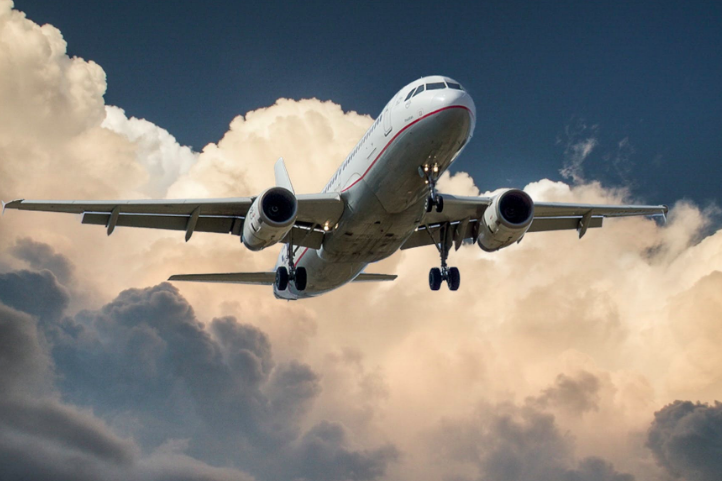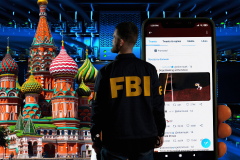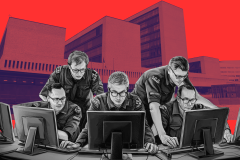You spend so much time in airports that the security agents and coffee shop clerks know your face. How would you feel if the computers and cameras knew you just as well?
Facial recognition in American airports isn’t a sci-fi future scenario. According to a report from the Department of Homeland Security, 97% of U.S. airports will use facial recognition technology to identify passengers by 2023. Automated systems will soon capture images of your face at departure and store those images in a database. They’ll then use the information to create a profile of your activity.
If that makes you uncomfortable, you’re not alone. A recent survey from travel search engine Reservations.com found 42.6% of Americans approve of facial recognition technology in airports to improve security and boarding speed. In contrast, 32.5% disapprove.
People today care more about what private companies and government entities do with their personal identifying information. Scandals like Cambridge Analytica revealed just how powerful data can be in the wrong hands. New regulations like Europe’s GDPR give consumers more power, but technology will continue to outpace regulatory oversight.
Frequent fliers deserve to know their rights regarding airport facial recognition. If you spend more than a few days a year in the sky, keep this in mind:
1. You can opt out of facial recognition.
If you prefer to keep your facial information to yourself, you can opt out of voluntary scans. Zach Whittaker, security editor at TechCrunch, detailed how travelers can retain most of their privacy.
To opt out of facial recognition, notify an airline employee before you go through the scanning process. Passengers who go this route can ask airport staff to check their IDs and passports the old-fashioned way. You may have to go through this process at multiple checkpoints.
Unfortunately, foreign nationals traveling to the U.S. don’t have the right to opt out of the facial recognition program. As soon as the biometric exit program becomes the national norm, travelers from outside the U.S. must agree to undergo facial recognition scans to confirm their departures. A few exceptions will be made for some Canadians and holders of specific visas.
As is the case with most technologies, you must pay a cost of convenience if you choose not to participate. Your airport experience will move more slowly; you may encounter increased scrutiny or suspicion for not playing along. Until further notice, however, you have every right to refuse.
2. Facial recognition technology remains imperfect.
Ideally, airports would only use facial recognition technology that can reliably identify passenger identities. Right now, the systems in place don’t meet that standard.
“Someone’s profile stored on an unknown number of systems with unknown data attached to it can lead to some worrying, albeit rare, scenarios where you could be mistakenly identified as a criminal,” says Patrick Hunter, director at One Identity.
Despite the relative youth of the technology, the Trump administration issued an executive order mandating widespread adoption of facial recognition tools as a counterterrorism measure. For frequent fliers, imperfect technology could lead to hairy situations and missed flights.
Stay ahead of facial recognition issues by bringing at least two forms of photo identification with you every time you visit the airport. If the system flags you as a false positive, you want to have all the information you need to verify your identity at a moment’s notice. Hopefully, technology providers will get ahead of the issues quickly, but it never hurts to be careful.
3. No one knows for sure what data the airlines keep.
In April, JetBlue passenger MacKenzie Fegan experienced a shock when she passed through her gate without handing over a boarding pass or passport. In the Twitter exchange that followed, Fegan asked JetBlue what data the airline keeps and how the cameras knew who she was.
JetBlue assured Fegan that the airline doesn’t retain the facial data and doesn’t maintain direct access to the photos it references from the Department of Homeland Security. While airlines all claim to treat traveler data with the utmost care, however, previous issues with large companies cast doubt over airlines’ sincerity and ability to protect private information.
Fliers shouldn’t limit their concerns to the airlines, though. Not even the government can protect data with perfect accuracy. In June, U.S. Customs and Border Protection officials revealed that hackers had stolen personally identifying information from their databases, including photographs of people’s faces and vehicle plates.
What will happen when other industries begin to adopt facial recognition technology to offer their own conveniences? Smartphones already let users unlock their phones with a glance. If someone takes your Social Security number, you can keep an eye on your credit report. If someone manages to take your face, however, you don’t have many options.
Frequent fliers will expose themselves to more facial recognition opportunities than almost any other demographic over the next few years. To protect your information, you must remain vigilant about when and how airlines and government entities use and store your data. Computers may soon know you as well as your friends and family.


















